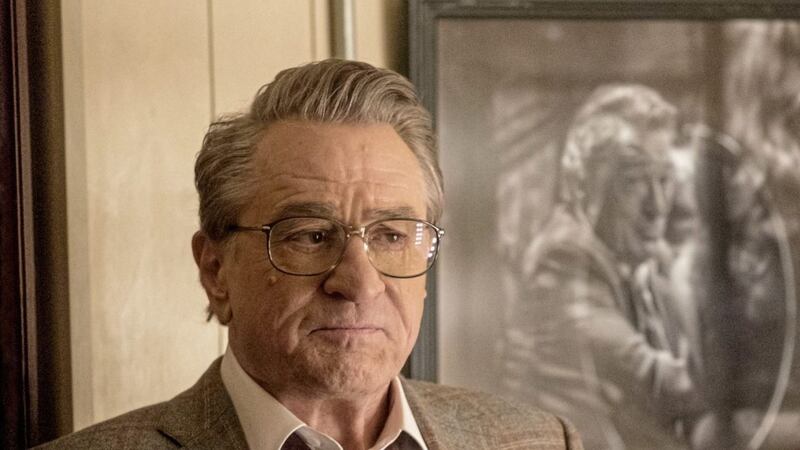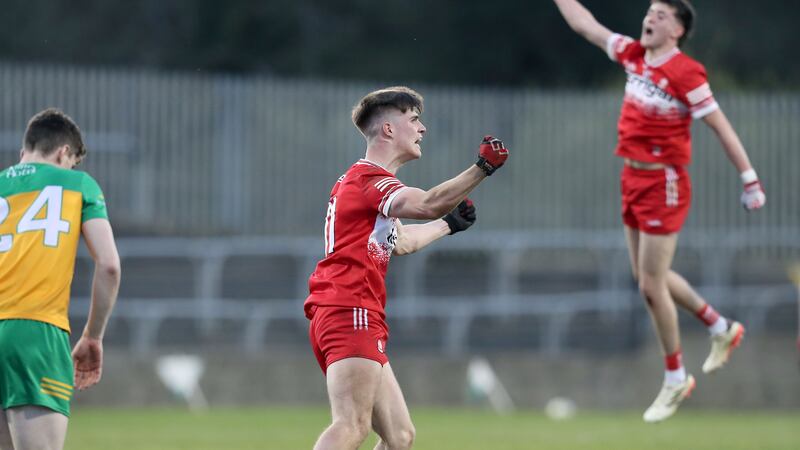ONE of my favourite all-time movies is Guilty by Suspicion, written and directed by Irwin Winkler.
Released in 1991, it stars Robert De Niro and depicts how the American Government pursued Hollywood actors and script writers during the 1950s over their alleged involvement in the communist party - activities described at the time as ‘un-American’.
Senator Joseph McCarthy was tasked with weeding out the ‘red’ threat and no better place to start than Hollywood’s high flyers.
This bleak period in American history was known as McCarthyism – or the McCarthy witch-hunt.
There have been several films made about McCarthyism - but Guilty by Suspicion tops the lot.
It was by no means a box-office hit but it was De Niro at his understated best.
Playing the role of Hollywood film director David Merrill, he’s harassed by the House of Un-American Activities Committee and ends up being denied the right to work because he was deemed a ‘Communist sympathiser’ for attending some meetings years earlier.
To save themselves from censure and to protect their own livelihoods, the great and the good of Hollywood called before the committee were intimidated into giving up the names of their friends.
When Merrill appears in front of the committee he stonewalls them.
The cigar-puffing committee members, the threatening language, the shiny mahogany benches, the old-fashioned microphones, the rhythmic crashing of the gavel, flashing camera bulbs and all the while the public gallery stirs.
It's an exhilarating scene and a brilliant piece of acting from the master as he excuses himself from the committee with the parting shot: “Shame on you!”
Exactly 50 years ago tomorrow, the GAA lifted ‘the ban’ on the playing of foreign sports.
Throughout the last week there have been some insightful newspaper articles reflecting on the events that led to Rule 27 being deleted at GAA Congress, which incidentally was hosted by Queen’s University in the Whitla Hall in April 1971.
I confess I’d never heard of the GAA’s Vigilance Committees before last weekend. It was fascinating to learn that these groups were set up in counties to police the ban.
If a GAA member was even seen attending a soccer, cricket or a rugby match, never mind playing them, they ran the risk of being suspended from all GAA activities.
The Vigilance Committees reminded me of the movie Guilty by Suspicion where fellow GAA members spied on each other in the interests of maintaining some lofty cultural monolith.
The out-workings of the GAA ban reached ridiculous proportions when the great Mick O’Connell was photographed at an FAI Cup match between Cork Hibs and Waterford.
O’Connell gave the GAA’s Vigilance Committee short shrift by telling them that it was none of their business what he did in his spare time as he was an amateur.
In yesterday’s Irish News, former Celtic and Republic of Ireland manager Martin O’Neill reflected on Antrim GAA’s belligerent attitude towards the prospect of him playing at Casement Park in a MacRory Cup semi-final in 1971 because he was lining out for Irish soccer club Distillery at the time.
As a consequence, the two competing schools St Malachy’s and St Mary’s were forced to play the game in Omagh.
Six weeks later, the rule was abolished and the much-maligned Vigilance Committees dissolved.
Even allowing for the context of the day, it is still startling to think the GAA operated in such an obtuse, controlling manner in trying to forge cultural expression.
History is pockmarked by moral outrage.
It seems we’re nothing these days without a good dose of it. Social media and moral outrage go hand in hand.
First it was the Down and Cork footballers.
Then the Dubs were at it too. Training in small groups. Just like his Cork and Down managerial counterparts, Dessie Farrell was hit with a 12-week ban.
Yesterday, it was Monaghan’s turn in the dock. Bang. Another 12-week ban slapped on manager Seamus McEnaney.
Who’s next?
Who else is hiding in the bushes with a mobile phone camera snapping players kicking a ball and keeping fit?
If these punishments were followed to their logical conclusion, perhaps the Down, Cork, Dublin and Monaghan footballers should suffer similar punishment.
Maybe 12-week bans each. Some people might argue.
We always believe the present day is the most enlightened era.
When we look back at the grainy images of the Dublin footballers and 'Banty' on forbidden sod, we'll wonder how we got ourselves into this hysterical state.
Back in 1970, many GAA folk would have agreed with the ban on foreign games in order to protect the Association’s cultural identity.
But, as time passed, ‘the ban’ and Vigilance Committees must have felt desperately draconian and, with hindsight, the moral outrage that accompanied it looks more than a little foolish now.
It’s slightly ironic to think that had the GAA acquired ‘elite’ status for its inter-county teams, all these COVID-compliant training sessions would be perfectly legal.
It’s amazing what a swish of a government minister’s pen can do to transform a situation.
There would be no need for people hiding in bushes or up trees spying.
The photographs plastered all over the media would mean nothing.
Let’s be clear: COVID19 is a seriously danger, ubiquitous virus.
But after a year of the pandemic, the virologists and public health experts know a fair bit more about its transmissibility.
Indeed, from the outset the experts speculated that outdoors was a much safer place than indoors.
Now they’ve compelling data that confirms this. An outdoor environment is roughly 19 times safer than indoors.
At the university of Canterbury, a study was carried on 27,000 COVID19 cases based on 6,000 different pieces of data, Prof Mike Weed concluded that the number of cases associated with outdoor transmission was “so small to be insignificant”.
You won’t find a virologist or a public health expert disputing the safety of outdoor activity especially with the mitigations in place that have become part of sporting life.
But the moral outrage drowns out all other voices – voices that would beseech the GAA to consider the compelling data of outdoor activity, and lobby government harder to change course.
Maybe these ‘breaches’ and subsequent 12-week banishing of managers are not all about trying to steal an advantage.
Maybe the adults need to be allowed out of the house just as much as the kids.
What's clear is the moralising and finger-wagging has to stop.
We must plot a more logical way forward.
There is light up ahead. We just need to get closer to it and follow the science.
What we don't need is another hysterical committee.








